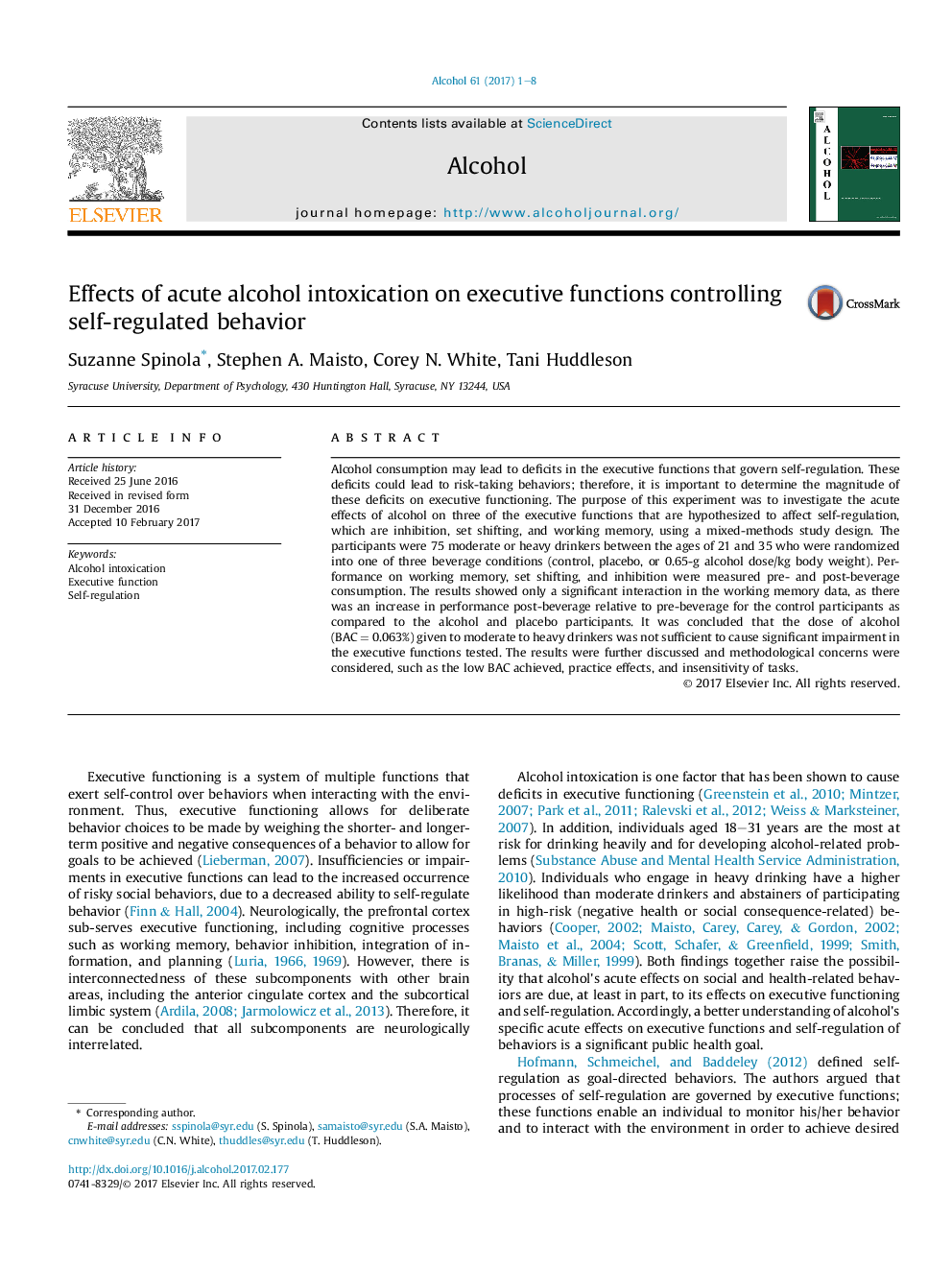| Article ID | Journal | Published Year | Pages | File Type |
|---|---|---|---|---|
| 5119700 | Alcohol | 2017 | 8 Pages |
â¢Significant interaction was found for working memory but not inhibition or set shifting.â¢A moderate dose of alcohol was insufficient to cause impairments in performance.â¢Results may have been influenced by practice effects or sensitivity of measures.
Alcohol consumption may lead to deficits in the executive functions that govern self-regulation. These deficits could lead to risk-taking behaviors; therefore, it is important to determine the magnitude of these deficits on executive functioning. The purpose of this experiment was to investigate the acute effects of alcohol on three of the executive functions that are hypothesized to affect self-regulation, which are inhibition, set shifting, and working memory, using a mixed-methods study design. The participants were 75 moderate or heavy drinkers between the ages of 21 and 35 who were randomized into one of three beverage conditions (control, placebo, or 0.65-g alcohol dose/kg body weight). Performance on working memory, set shifting, and inhibition were measured pre- and post-beverage consumption. The results showed only a significant interaction in the working memory data, as there was an increase in performance post-beverage relative to pre-beverage for the control participants as compared to the alcohol and placebo participants. It was concluded that the dose of alcohol (BACÂ =Â 0.063%) given to moderate to heavy drinkers was not sufficient to cause significant impairment in the executive functions tested. The results were further discussed and methodological concerns were considered, such as the low BAC achieved, practice effects, and insensitivity of tasks.
